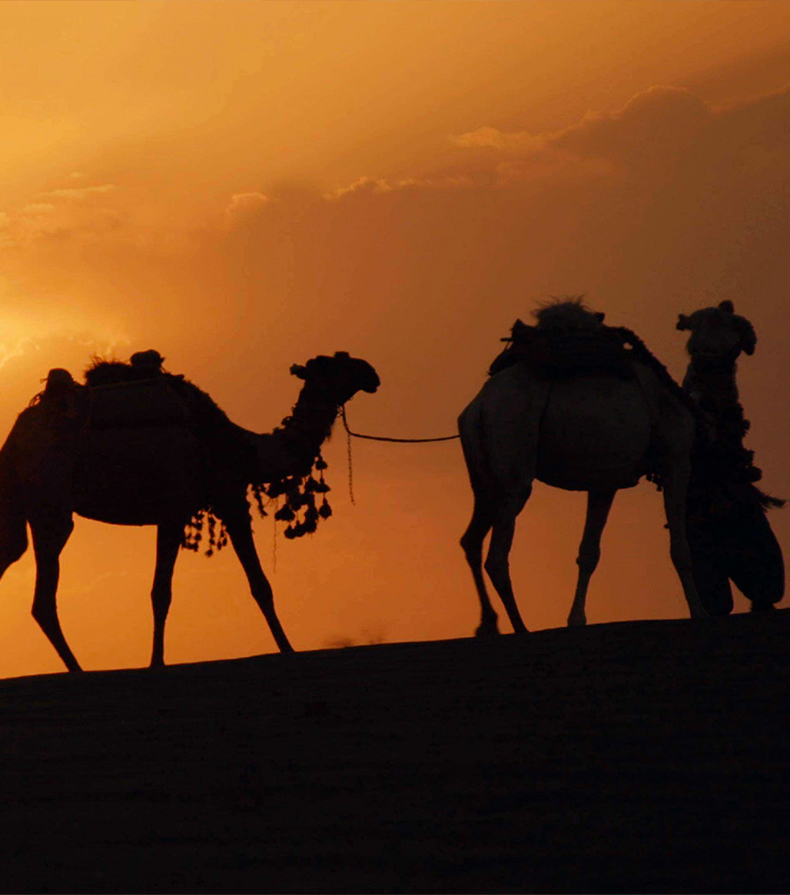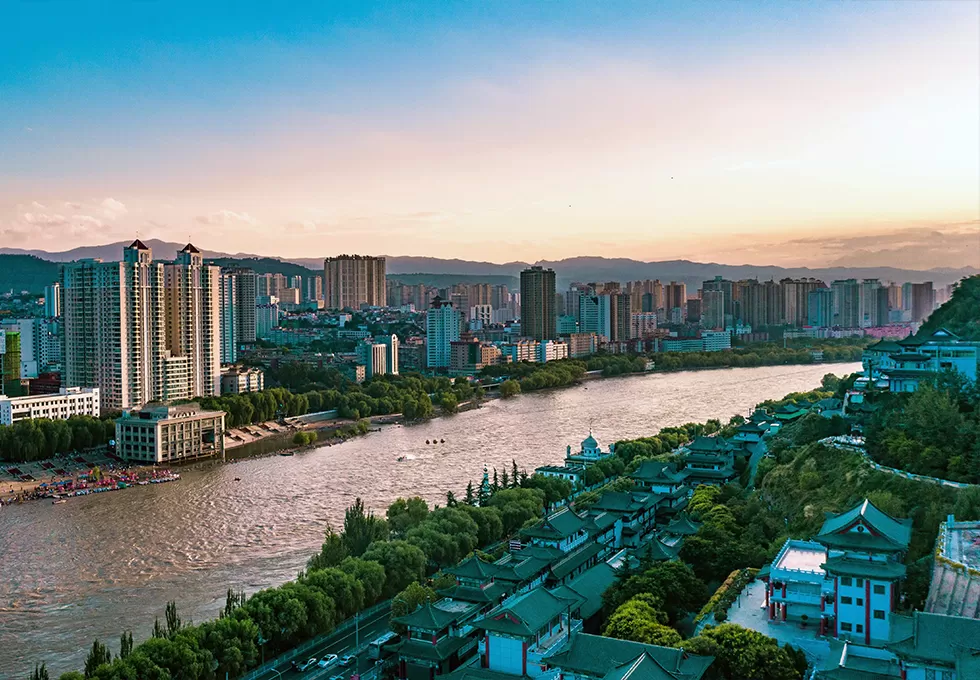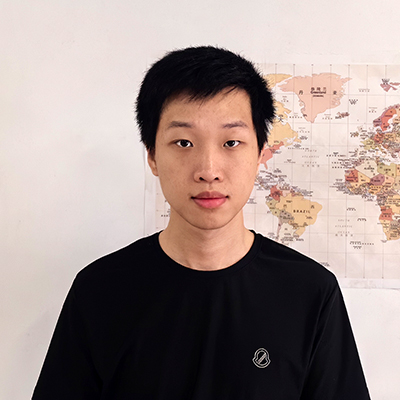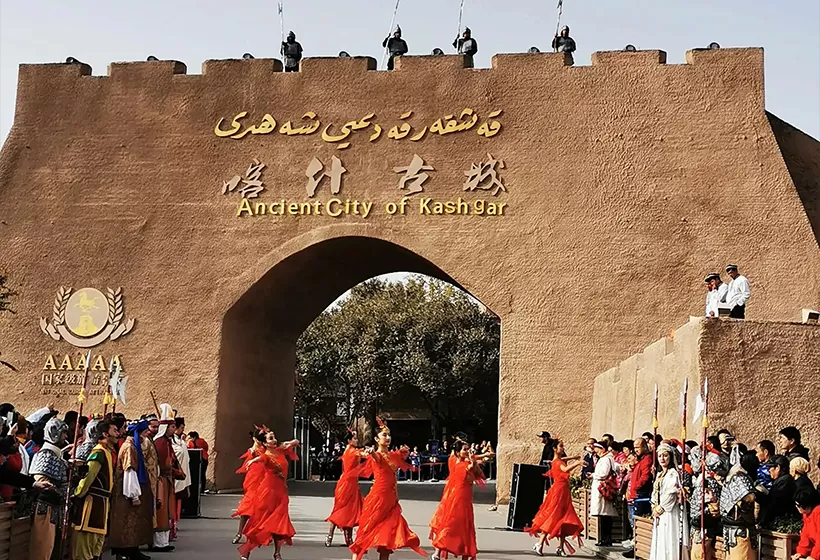Short Introduction to Lanzhou Local Culture: History, Diet, Festival, etc.
Lanzhou, abbreviated as "Lan", also known as Jincheng, is the capital of Gansu Province, located in northwestern China and central Gansu and is the geometric center of China's land territory. Lanzhou serves as the political, cultural, economic, and educational hub of Gansu, as well as a historic city enriched by Yellow River culture. With a city history spanning over 2,000 years since the Qin Dynasty, Lanzhou has long been a strategic transportation hub and military stronghold connecting distant regions, known as the "Pearl of the Yellow River".
Brief History
As early as 15,000 years ago during the Late Paleolithic period, there were ancestors living in what is now Lanzhou. During the Xia, Shang, and Zhou dynasties, this area was a grazing land for the Qiang and Rong tribes. By the Warring States period, the Xiongnu people had moved south, seizing land between the Yellow River and the Qin Great Wall, where includes modern Lanzhou.
After the First Emperor of Qin unified the six states, he dispatched General Meng Tian to drive the Xiongnu northward, capturing the south of the Yellow River. China was divided into 36 prefectures, with the Lanzhou area falling under the jurisdiction of Longxi Prefecture.
In 121 BCE, Western Han General Huo Qubing led forces westward to defeat the Xiongnu and established a garrison at the west of modern Lanzhou. In 86 BCE, Lanzhou was officially designated as Jincheng County, later renamed Jincheng Prefecture in 81 BCE.
In 583 CE, during the Sui dynasty, Jincheng Prefecture was renamed Lanzhou after Gaolan Mountain, located south of the city. In 617 CE, Xue Ju rebelled against the Sui, declared himself King of the Western Qin, and established his capital in Jincheng, which was subsequently reclaimed by the Tang.
After the Tang dynasty reunified China, Lanzhou was re-established in 619 CE. However, in 762 CE, the region fell to the Tubo Empire, only to be recaptured in 848 CE by the upriser, Zhang Yichao from Hezhou, restoring eleven territories in the Longyou area to Tang control. Despite this, Tang’s weakened state meant it soon fell to the Tangut people.
During the Northern Song dynasty, Lanzhou became a front line in battles with the Western Xia, Song, and Jin states. For defense, the people fortified Lanzhou with numerous castles, and the city itself underwent continuous reconstruction.
In 1666, during the Qing dynasty, Gansu Province was established, separating it from Shaanxi and designating Lanzhou as the provincial capital. Since then, Lanzhou has remained the political center of Gansu.
On August 26, 1949, Lanzhou was liberated, marking the start of a new chapter in its history.
Region Culture
Lanzhou is one of the key cradles of civilization along the Yellow River basin. As early as prehistoric times, the ancestors of this region lived and thrived here, leaving behind invaluable cultural relics, most notably the Majiayao, Banshan, and Machang cultures.
Over the course of history, Lanzhou gradually became an essential hub on the Silk Road. During the Han Dynasty, its strategic location made it a focal point for cultural exchange between East and West. Merchants converged, camel bells echoed, and diverse cultures mingled and collided, fostering the cultural development of the region. By the Tang Dynasty, Lanzhou had become an integral part of Yellow River culture, with poetry, calligraphy, and painting flourishing.
In Lanzhou's traditional culture, folklore and customs hold a prominent place. The region boasts a rich tapestry of legends, including mythological tales and historical narratives, with the "Legend of the Lanzhou Iron Bridge" and the "Legend of White Pagoda Mountain" being among the most famous.
Lanzhou is also home to unique folk arts and traditions. Lanzhou paper cutting, clay sculptures, and folk painting are treasures of the region's artistic heritage. Traditional customs such as the "Lanzhou Yellow River Zither" and the "Lanzhou Shehuo Festival" are long-standing folk activities.
Special Festivals
The Dragon Heads-raising Day on the second day of the second lunar month is a traditional festival in Lanzhou. In some areas, people celebrate with Shehuo. On this day, both adults and children get haircuts, symbolizing the idea that people and dragons alike raise their heads for a fresh start to the new year. Families may also roast wheat, sesame seeds, and lentils, expressing hopes for a bountiful harvest in the year ahead.
Eid al-Fitr falls in the ninth month of the Islamic lunar calendar. During this month, people fast from dawn until sunset, refraining from eating or drinking. On the festival day, everyone, young and old, is filled with joy, dressing up after ritual bathing, then go to mosques for prayers and visit relatives and neighbors, exchanging greetings and blessings.
The Silk Road Festival is held every September, featuring a dedicated Dunhuang Journey for travel groups. The tour begins in Lanzhou and follows the Qilian Mountain foothills westward, passing through Wuwei, Zhangye, and Jiuquan, crossing Jiayuguan, and finally culminating in Dunhuang.
Diet Style
Lanzhou cuisine is characterized by its skillful preparation of beef and lamb, often cooked by roasting, boiling, or stewing in a simple, unpretentious style. Dishes tend to use minimal additional ingredients, with flavors focused on umami, salty, sour, fragrant, and spicy. Lanzhou’s cooking heavily relies on spices for a rich, robust, and often fatty taste profile. Noodles are a common staple and are crafted with variety and precision, with Lanzhou beef noodles being the most famous. With the influence of outside culinary techniques, some Lanzhou dishes have also evolved to become lighter and more refined in appearance.
Lanzhou cuisine forms part of Northwest Chinese cuisine. This regional style not only preserves elements of Central Plains culinary traditions but is also influenced by the cuisines of Sichuan, Shaanxi, and other areas. Through centuries of adaptation and development, Northwest cuisine has become distinct from the snacks and foods of ethnic groups like the Uyghur and Hui, embodying a unique culinary identity.
Cultural Heritage
Lanzhou, as a key hub on the Silk Road controlling strategic passes and connecting the Western Regions, boasts a long history and countless cultural relics. The Yellow River Iron Bridge stands as a testament to Lanzhou's transition to modern civilization during the late Qing Dynasty, Wuquan Mountain reflects the inheritance of a millennia-old culture, and Qingcheng Ancient Town bears the delicate marks of history's passage.
The Gansu Provincial Museum houses numerous treasures. The greatest treasure, the bronze Galloping Horse Treading on a Flying Swallow, echoes the roar of galloping steeds and bears the imprints of a bustling past. The Yuan Dynasty lotus-patterned glass goblet, dazzling in the night, has stood timeless and radiant for millennia, untouched by the passage of time.
Lanzhou also takes pride in its rich intangible cultural heritage. The art of making Lanzhou Beef Noodles, has evolved over a century to become a celebrated culinary and cultural icon of the city. Meanwhile, the Taiping Drum of Lanzhou, known as "The First Drum Under Heaven", with its powerful beats and unique performance style, encapsulates the Northwest style and artistic allure.
Customize Your Unique Jincheng Lanzhou Trip

If you are interested in one of the Lanzhou itineraries mentioned above, please contact us, and we will be happy to customize it and provide a quote tailored to your preferences.
Alternatively, if you would like to customize your Lanzhou Tour, please visit our Lanzhou Tour Customized Center. We assure you that you will receive a reply within 24 working hours.
Informative Articles for Your Lanzhou Trip
 the ancient Silk Road
the ancient Silk Road- Travel Guide: attractions, weather, hotels, food, etc.
- Top destinations: best places to visit in Lanzhou
- Travel itineraries: itineraries for your reference
- Local culture: brief history, folk culture, festivals, etc.
- Weather: the best time and seasons to visit Lanzhou
- Top attractions: sightseeings to watch in Lanzhou
- Unique perspective: best interesting things to do
- Local food: what to eat while traveling in Lanzhou
- Luxury hotels: accommodation to stay in Lanzhou
- Lanzhou Tours: customized tours for your reference
GREAT FAMILY CHINA TOUR
JULY 2024 We wanted to thank Grace at China Culture tour for organizing a great tour of China. We enjoyed our Beijing - Xian-Chengdu -Guilin -Yangshuo - Shanghai trip. Our local guides Bruce in Beijing, Susan in Xian, Jane in Chengdu, Mike in Guilin and Mary in Shanghai took care of us…read more details »
Teng Han L from SINGAPORE
Ready to Create a Unique Dream Travel?


